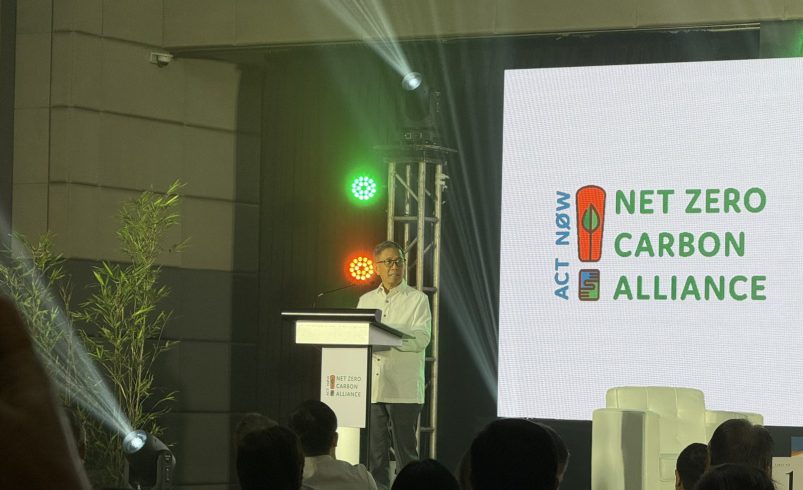Lotilla: PH Can’t Afford Delay as Congress Tackles Pending Climate Legislation
- September 19, 2025
- 0

Department of Environment and Natural Resources (DENR) Secretary Raphael “Popo” Lotilla stressed the importance of credible climate policies to support the Philippines’ energy transition. During his keynote speech at the Net Zero Carbon Alliance (NZCA) Conference 2025, he highlighted pending legislations such as the
Lotilla said the Philippines has pledged a nationally determined contribution (NDC) of 75% reduction in greenhouse gas emissions by 2030 from business-as-usual levels, but pointed out the challenge of meeting this target. “I don’t know how many of you, even from the Net Zero Alliance, are convinced that this is a realizable goal,” he said.
He emphasized that the Philippines remains the only ASEAN country without a net zero commitment, partly due to the recognition that achieving the 75% emissions reduction goal cannot be done overnight.
“The motivation for setting a very high target for greenhouse gas emissions was that there will be international resources that are going to come in and support that ambitious goal. Now, since that goal was set, the expectations of international mobilization of resources has not been realized,” Lotilla said.
Lotilla cited two legislative measures that could strengthen the country’s decarbonization framework. The Low-Carbon Economy Investment Bill, which passed third reading in the House of Representatives during the previous Congress, mandates large emitters to develop decarbonization plans, set emission ceilings, and invest in accountable and flexible low-carbon technologies. It also provides for an emissions trading framework, incentivizes clean energy investments, and opens access to international climate finance.
Complementing this is the proposed Carbon Rights Bill, which seeks to clarify ownership of carbon benefits and unlock opportunities for carbon forestry and ecosystem credits.
“In the meantime, that the legislation is still to be adopted by Congress, this does not prevent the Executive Department from laying the groundwork for achieving the same objectives,” Lotilla said, citing ongoing initiatives such as the Philippine Greenhouse Gas Inventory Management System, the 5 Million Trees Project by 2028, and the development of Philippine Carbon Regulations.
Lotilla underscored the role of the private sector, noting that it accounts for at least 50% of the country’s greenhouse gas emissions. “The corresponding responsibility and accountability for making inroads into those emissions also lies with the private sector and the leadership that you are going to show,” he said.
The DENR chief pointed to the severe economic impacts of climate change on the Philippines, which contributes less than 0.4% of global emissions yet remains one of the most climate-vulnerable countries. He cited data that disasters displaced 43 million Filipinos between 2014 and 2023, while typhoon-related losses shaved 1.2% of GDP each year. By 2040, unchecked climate change could reduce GDP by 13.6%.
Yet Lotilla noted that science shows two-thirds of these projected losses can still be avoided with decisive action. “The Philippines must not only keep pace, we must lead by example, demonstrating credible science-based climate actions that balance economic growth with economic integrity,” he said.
“The Philippines cannot afford to wait as climate impacts, especially in our country, will not wait,” Lotilla concluded.
What are your thoughts on these pending climate policies- do you think they will finally provide the framework businesses need to scale up decarbonization?
Follow Power Philippines on Facebook and LinkedIn or j